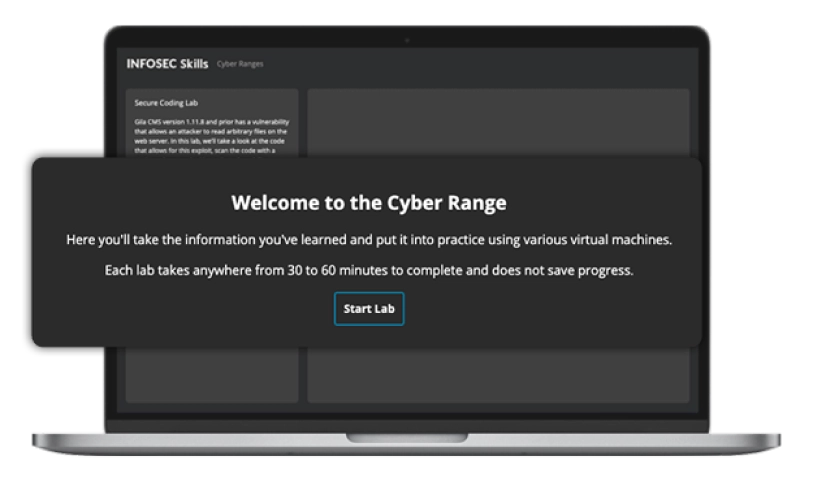
CompTIA Security+ (SY0 601, 2021 Release) Learning Path
22 hours, 45 minutes
Quick facts
About this learning path
-
courses
100% online
-
Duration
22 hours, 45 minutes
-
Assessment
questions
About CompTIA Security+ (SY0 601, 2021 Release)
This learning path builds on your existing networking skills and prepares you to earn your Security+, one of the most popular entry-level cybersecurity certifications. You’ll learn the foundations of information security as you progress through 13 courses tied to the six Security+ certification exam objectives. Upon completion, you’ll be prepared to earn your Security+ certification and have an established base of cybersecurity knowledge you can use to progress into more advanced security certifications or career roles.
Syllabus
Security+ (601) Practice Exam
Assessment - 87 questions
Risk Management
Course - 02:14:00
Cryptography
Course - 03:05:00
Identity and Account Management
Course - 01:21:00
Tools of the Trade
Course - 02:48:00
Securing Individual Systems
Course - 02:09:00
The Basic LAN
Course - 02:00:00
Securing Wireless LANs
Course - 01:37:00
Securing Public Servers
Course - 01:06:00
Securing Dedicated Systems
Course - 01:04:00
Physical Security
Course - 00:29:00
Secure Protocols and Applications
Course - 01:26:00
Testing Infrastructure
Course - 01:09:00
Dealing with Incidents
Course - 01:33:00
The details
Learning path insights
How to claim CPEs
Should you complete this learning path, you’ll be able to download a certificate of completion. Use this to claim your CPEs or CPUs.
Associated NICE Work Roles
All Infosec training maps directly to the NICE Workforce Framework for Cybersecurity to guide you from beginner to expert across 52 Work Roles.
- All-Source Analyst
- Mission Assessment Specialist
- Exploitation Analyst
No software. No set up. Unlimited access.
Skip the server racks and spin up a realistic environment with one click. Infosec Skills cyber ranges require no additional software, hardware or server space so your team can spend less time configuring environments and more time learning. Unlimited cyber range access is included in every Infosec Skills subscription so your team can skill up however they learn best.

Unlock 7 days of free training
- 1,400+ hands-on courses and labs
- Certification practice exams
- Skill assessments
Plans & pricing
Infosec Skills Personal
$299 / year
- 190+ role-guided learning paths (e.g., Ethical Hacking, Threat Hunting)
- 100s of hands-on labs in cloud-hosted cyber ranges
- Custom certification practice exams (e.g., CISSP, Security+)
- Skill assessments
- Infosec peer community support
Infosec Skills Teams
$799 per license / year
- Team administration and reporting
- Dedicated client success manager
-
Single sign-on (SSO)
Easily authenticate and manage your learners by connecting to any identity provider that supports the SAML 2.0 standard.
-
Integrations via API
Retrieve training performance and engagement metrics and integrate learner data into your existing LMS or HRS.
- 190+ role-guided learning paths and assessments (e.g., Incident Response)
- 100s of hands-on labs in cloud-hosted cyber ranges
- Create and assign custom learning paths
- Custom certification practice exams (e.g., CISSP, CISA)
- Optional upgrade: Guarantee team certification with live boot camps

